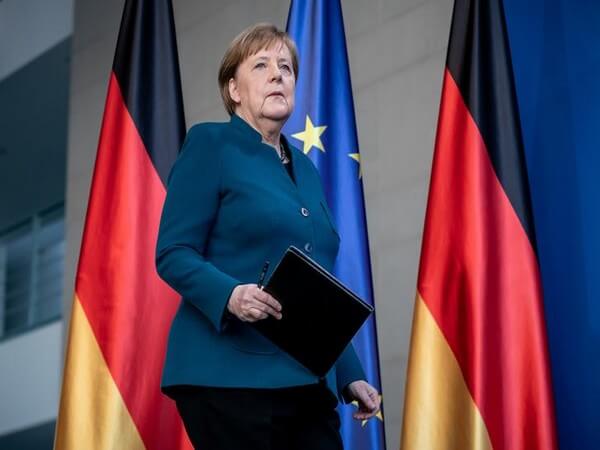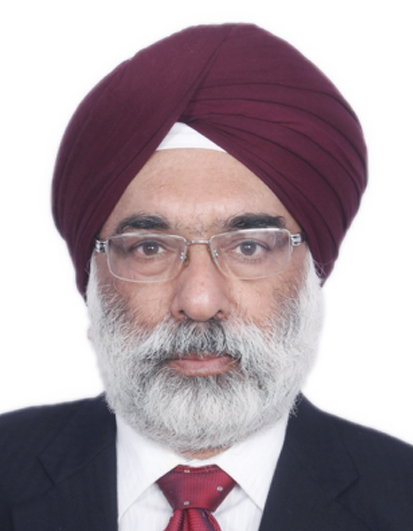
A Change is Coming Through German Elections

Change is expected in the German elections on 26 September. For the first time since 2005, Chancellor Angela Merkel, is not a candidate. Her self-imposed term limit of four as Chancellor, has given way to a sense of uncertainty in Germany. Germany has become accustomed to the Merkelianer way. It signifies a scientific, practical, unemotional, moderate, middle of the road, middle class existence. Crises have come, but ‘Mutti’ Merkel was always there with her steady hand on the ship.
A whole generation of German voters will now vote without Merkel in their consideration. The last few months have seen Germany suffer from Covid and floods, often due to obsolete infrastructure and problems emerging from lack of attention. Thus, in the election the absence of Merkel and the impact of recent problems are both playing a major role.
In 2017, Merkel’s Christian Democratic Union (CDU) party had its worst result since 1945. It secured 32.9% of the vote. Despite being the biggest loser, it was still a winner with the biggest vote share. On that occasion, Social Democratic Party (SPD) won 20.5% and right-wing Alternate for Democracy (AfD) 12.6%. Smaller parties like the Free Democratic party (FDP) got 10.7%, the Left, 9.2% and the Greens 8.9%.
In three out of four terms of Merkel, the role of the smaller parties was diminished. Stable governments could not be formed by the CDU even with two small parties; only once did a government with the FDP emerge. As FDP vote share fell in the next elections, they lost their place in the Bundestag.
Since 2005, for 12 years, grand coalitions between the CDU and the SPD, have run Germany. This is akin to thinking of a BJP-Congress coalition at the centre. However, this was not an exception, but the dominant theme for the last few years.
SPD as the second largest party over several years, had been suffering problems of being a junior coalition partner. Their vote share was gradually slipping. As part of a centrist coalition with the CDU, it was losing its moorings of socialism. Its vote share diminished clearly. In 2017, it reached the nadir of its vote share at 20.5%. There were calls for keeping away from a coalition and grinding itself back to an identity. The nature of the poll results did not allow that, since other parties did not have enough to give the CDU a majority particularly after the FDP became over ambitious and left the negotiations. SPD was thus caught in a bind and remained, since October 2020 at a level of 15% of the vote, facing oblivion.
Suddenly in July-August 2021, SPD support has picked up and in the last poll of 13 September, it has now taken the pole position with a 25% vote share.
There’s no discernible reason to understand how the SPD vote share has picked up by almost 10%. Its current leader is Olaf Scholz, the Vice Chancellor and finance minister in the government. The most charitable explanation is that by keeping quiet and not entering into any controversy, he has avoided negative perceptions. Given his experience as mayor of the city-state of Hamburg, and now the finance minister, he was leading among the three main candidates for the Chancellorship with Armin Laschet of the CDU and Annalena Baerbock of the Greens.
Equally surprising has been the sudden decrease in the vote share of the CDU/ Christian Socialist Union (CSU) combine. They were running at about 35% since October 2020. Their support started dipping in March. By May it had fallen under 25% and by September, their support is down to 21%, a drop of nearly 12% from 2017 which was the worst ever performance. This is partly a result of current popular disaffection with the way Covid and floods have been handled.
Another reason is that the floating voter is not enamoured with the personality of Laschet. He is the regional president of Germany’s largest state, the North Rhine Westphalia. He had beaten off the challenge of their alliance partner, CSU leader Markus Soder from Bavaria for the alliance leadership. Many people believe that Soder would have been a better candidate. The CDU did not want to concede the chancellorship.
The challenge before CDU will be after the elections. Will they like to remain out of government and rebuild themselves in a post-Merkel period? Or will they reciprocate the SPDs support over the years by joining as a junior partner in a coalition? Polls do not suggest the latter alternative but surprises can nevertheless crop up. The CDU is a partner in 11 of 16 State governments and the SPD in 10. In 6 states both are partners!
The biggest swing has been that of the Greens. They had a vote share of 8.9% in 2017. They did well in several state elections, including having the presidency in Baden Wurttemberg and in government in 10 states. They had about 18% support in October 2020 and slowly increased their vote share to about 25% in polls in May 2021. That led them to announce their own candidate for the Chancellery for the very first time with Annalena Baerbock. She has been in the parliament but never held a ministerial position either in the regions or in the centre.
This led to a surge in support for the Greens. Some issues of integrity regarding her campaign have played down the Greens and they have come plummeting down to 16% in September polls. This will still leave them as the third largest party with almost double their vote share of 2017. The Greens could be a part of government whichever party leads it.
The right wing AfD continues to hold its 2017 level of 12.6%. It remained at the level of 10 -12% for most of this year. They are a red line for all parties and no party is expected to approach them to form a government.
Marginally higher than the AfD is the support for the FDP, which is currently a partner in North Rhine Westphalia with CDU candidate Laschet. The FDP had 10.7% in 2017 but had become overambitious, thus getting left out of government. Now they are projected to score 12% and along with the Greens are expected to be in government, whether it is the SPD or the CDU leading it. Since they are only part of 2 state governments, they would welcome an opportunity in Berlin.
Left parties are mainly operating in the former East Germany and are a remnant of the ruling party of GDR. They have a consistent support base of about 6%. In 2017, they increased their vote share to 9.2% picking up anti-AfD vote. They are back to the level of 6%. Though part of 3 state governments, they are normally anathema for Federal government because they have clear policies towards withdrawing from NATO and not being enthusiastic about the European Union, among other things.
Be that as it may, SPD would prefer a non-CDU coalition and may like to go with the Greens and the Left if they can help it. The FDP would be a later choice.
The author believes that the SPD offering a partnership with the Left is mainly to appease the socialist wing of the SPD, which at the moment is keeping quiet. This allows the SPD to position itself as a centrist organisation much in the mould of Merkel. After the elections, the socialist wing of the SPD is likely to play a more vociferous role. In order to win the elections, SPD under Scholz is projecting themselves as better inheritors of the Merkel legacy.
The German Bundestag has a minimum, stipulated 598 parliamentary seats, but it has a levelling arrangement-based on proportional assignment of seats depending on what vote shares over the minimum 5% threshold each party wins. The last parliament had 709 seats, the largest ever. This means more coalition building to get a stable government.
The mixed proportional system does not allow a wave which is more possible in a first past the post parliamentary system. Due to this, coalitions are the norm that have actually held Germany ever since their second elections.
In order to have clear control over government, the SPD needs to win at least 30% vote share or more. Then their position is strong and they can get the Greens and the Left to form a government. If the combined share is inadequate, then the FDP will need to be brought in and the Left will be left out. This is not what the socialist wing of the SPD likes. The chances of SPD scoring higher votes comes from being seen as a centrist, not a socialist party! If it wins enough votes, their socialist wing will call the shots.
If SPD does not get more than 30% share, they just may have to go back to the CDU for another grand coalition! Then the change will only be the absence of Merkel.
******************
Disclaimer
The opinions expressed in this article are the author’s own and do not reflect the views of Chanakya Forum. All information provided in this article including timeliness, completeness, accuracy, suitability or validity of information referenced therein, is the sole responsibility of the author. www.chanakyaforum.com does not assume any responsibility for the same.
Chanakya Forum is now on . Click here to join our channel (@ChanakyaForum) and stay updated with the latest headlines and articles.
Important
We work round the clock to bring you the finest articles and updates from around the world. There is a team that works tirelessly to ensure that you have a seamless reading experience. But all this costs money. Please support us so that we keep doing what we do best. Happy Reading
Support Us





















POST COMMENTS (1)
Raghu Babu